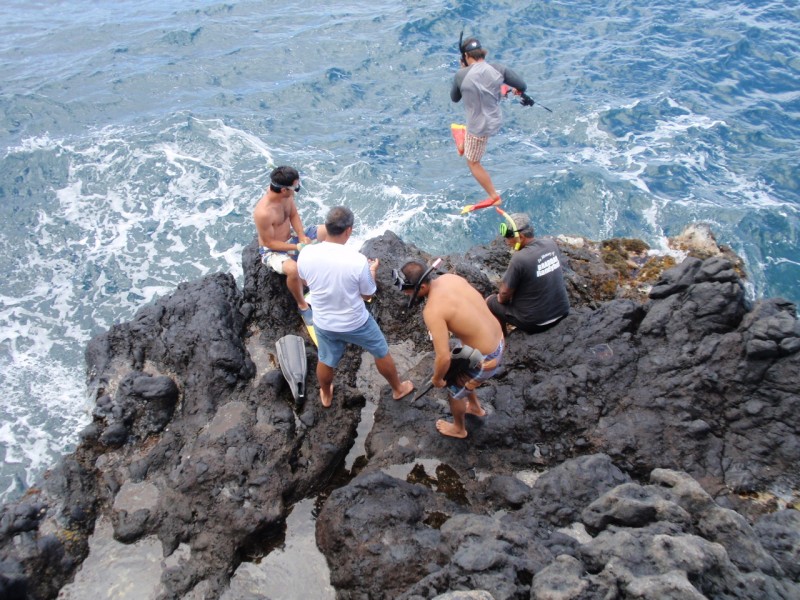New community-based subsistence fishing areas in Hawaiʻi to ensure future abundance

World Oceans Day in Hawai’i coincided this year with real progress on practical steps by two rural Native Hawaiian subsistence fishing communities to ensure fishery abundance for future generations.
On June 7, the Kīpahulu ʻOhana on Maui met with about 100 members of the community to hear comments on a set of rules developed over the last few years by members of lineal lawaiʻa (fishers) families. Their efforts were inspired by similar community efforts at Moʻomomi on Molokaʻi and Hāʻena on Kauaʻi.
At a rule package scoping meeting, the state Department of Land and Natural Resources’s Division of Aquatic Resources addressed questions from community members about the reasons for the rules and noted suggestions for modifications. There was an in-depth discussion about the reasons for bag limits, restrictions on modes of fishing and extensions of the kapu (laws and regulations) season.
The next step will be to finalize the Division of Aquatric Resources’ draft rules and request a formal public hearing from the Board of Land & Natural Resources.
On World Oceans Day on June 9, Hawaiʻi Gov. David Ige signed into law four bills to protect marine resources.
On June 9, the Board of Land & Natural Resources (BLNR) held a decision-making hearing to adopt proposed community-based subsistence fishing area rules shepherded by the community organization, Kalanihale, on behalf of the Fishing Village of Miloliʻi on the Big Island.
That hearing resulted in BLNR’s unanimous adoption of the rules which now await the Governor’s signature. The public process for Miloliʻi leading up to adoption drew strong community interest with more than 150 people attending in-person or virtually, or submitting testimonials at DAR’s first hybrid public hearing.
The presence at both events of three generations of lawaiʻa families with a long history of subsistence from the ice box of their ocean speaks for a more responsible and sustainable future in stewardship of resources.
“This is about the lawai`a of Miloliʻi self-managing their harvests and caring for their marine resources,” said Uʻilani Naipo, a key member of a fishing family of Miloliʻi who has been steadfast in using traditional knowledge to mālama their ice box. “Pursuing a Community-Based Subsistence Fishing Area (CBSFA) designation is a reclamation of what was old, made relevant for today – codifying traditional and customary practices into new fishing rules, promoting lawai`a pono (responsible fishing).”
Naipo added that CBSFAs allow the state to leverage community-based knowledge and cooperation to implement fishery governance and management strategies that are truly sustainable.
The families act from a deep sense of their responsibility to steward the ocean’s resources. Their actions are based on kilo (careful observation).
“We don’t see the limu. The life cycles are off,” local fisher, Michael Kalani Forcum said.
Another fisher, Leivallyn Kaupu, added: “We’ve seen a decline in pākuʻikuʻi, kole, uhu and other important subsistence species.”
Once the governor signs off on the marine laws, the state and the community will transition into a collaboration to co-manage the CBSFA. As keepers of generational place-based knowledge, Miloliʻiʻs Mohala Nā Konohiki apprentices will co-manage the CBSFA by helping to survey and monitor.
“I am committed to monitoring our marine life through managing what I harvest and what I see others harvest,” says Mohala Nā Konohiki apprentice, Darrell Lopez.
Another Konohiki apprentice, Melissa-Ann Māhealani Waite-Crawford said: “My children will one day rely on the resources we have. But those resources wonʻt be here if we donʻt do our part to take care of it now.”










